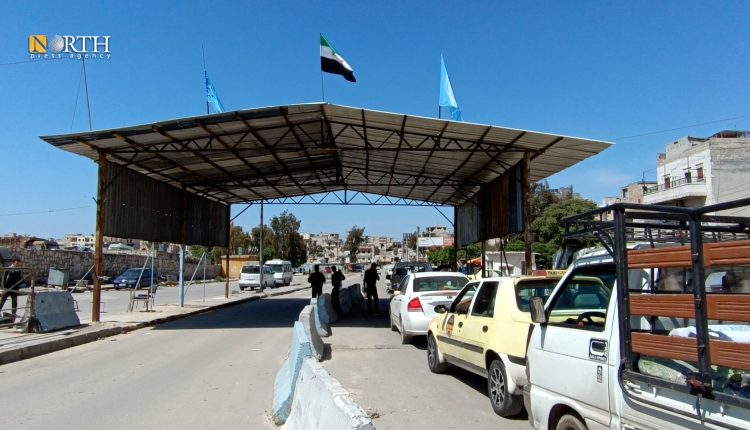Asayish coordinate with authorities in Aleppo to strengthen security
ALEPPO, Syria (North Press) – An official of the Internal Security Forces of North and East Syria (Asayish) in Aleppo’s Kurdish neighborhoods told North Press on Monday that they are coordinating with the General Security forces of Aleppo to pursue wanted individuals following an agreement made between the local councils of these neighborhoods and the Syrian transitional government.
Alif Muhammad, co-leader of the Asayish in Sheikh Maqsoud and Ashrafiyeh, explained that as a result of the agreement, Asayish forces have fully assumed their responsibilities in these neighborhoods and are “fully prepared for any unforeseen events.”
The security leader further clarified that her forces have taken over monitoring points around the Sheikh Maqsoud and Ashrafiyeh neighborhoods. “This is to ensure the internal security of the neighborhoods, alongside regular 24-hour patrols,” she stated.
She noted that while Syrian General Security forces are not present within these neighborhoods, there is “coordination and shared checkpoints outside the neighborhoods to provide protection to the residents. This is the responsibility of the General Security Forces, all coordinated with the Syrian Ministry of Interior after the integration.”
Muhammad outlined the procedure for handling incidents such as thefts or killings within the neighborhoods: “These are investigated by the specialized departments. However, if the suspect flees to other areas of the city, the established committees coordinate with General Security forces to pursue them there as well.”
She added that if a suspect is apprehended by General Security forces, they are transferred to the Asayish for further legal proceedings, and vice versa. “We handle crimes like theft and other offenses in close coordination with the Syrian Ministry of Interior’s coordination committee.”
Muhammad emphasized that the agreement between the Kurdish neighborhood councils and the Syrian government contributes to maintaining security and stability in the country, describing it as “historic.”

